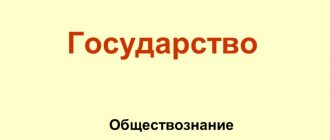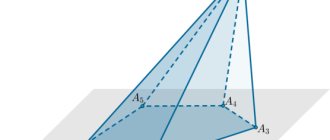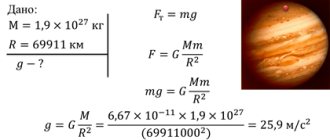Economic systems
Economic system
- this is a historically emerged or established set of principles, rules, and legislatively enshrined norms operating in the country that determine the form and content of economic relations, which manifests itself in the process of production, distribution, exchange and consumption of an economic product.
Main economic problems
Let's understand the meaning of this concept. What are the two main problems people have to solve in the economic sphere? The problem of limited resources
and the related
problem of choice
. In different economic systems, these problems are solved in different ways. Which methods are more effective? This is the question that economics is trying to solve.
There are usually two things that distinguish one economic system from another:
.
The form of ownership of the means of production
and
the method of coordinating economic activities.
That is, a way to solve the three main questions of the economy - what, how and for whom to produce?
Traditional economic system
The earliest chronologically is the traditional system
.
Its main distinguishing feature is the dominance of subsistence farming
. When engaged in production, people focus exclusively on their own needs; the exchange phase is practically absent.
The main industry is agriculture
, since it is agriculture and animal husbandry that satisfy the basic needs of people - food, clothing. Without their satisfaction, a person will not be able to exist in the biological sense.
Technical progress, improvement of tools and technologies is happening, but very slowly. Sometimes centuries and even millennia pass (and sometimes more than one) before any improvements appear. Methods of activity are passed on from generation to generation with virtually no changes and become a tradition. Hence, by the way, the name of this economic system.
As for the dominant form of ownership, the situation is somewhat more complicated. In the conditions of a completely traditional society - primitive communal - property was public. But already at the stage of the decomposition of the clan community, replacing it with the neighboring one, the property of individual groups - patriarchal families - appears, and then private property.
In ancient despotisms, medieval monarchies, and eastern states of modern times, the state played a large role in property relations. It, for example, in many cases, was the supreme owner of the land.
The development of commodity-money relations, that is, the growing importance of exchange and trade in economic activity, undermines the foundations of the traditional economy. More and more products are being released for sale on the market. From the very beginning, artisans were oriented towards this. At least since the second major social division of labor took place - the separation of crafts from agriculture. The development of market relations in Western Europe was greatly stimulated by the Great Geographical Discoveries. They expanded the possibilities for marketing products and contributed to the initial accumulation of capital for the development of large-scale industrial production. , the market economic system was finally established in the Western world
Market economic system
Classic market
- This is a free market. That is, all participants in economic activity independently, at their own peril and risk, make economic decisions: what and in what quantities to produce, what and from whom to buy. They are guided by considerations of personal material gain. The state practically does not interfere in economic relations: except to establish the legal framework and collect taxes.
The economy is controlled by the “invisible hand” of the market. This is the expression of Adam Smith, perhaps the most famous economist of all time.
He meant that choosing the correct answer to the questions of what and how to produce is helped (or more precisely, forced) by market laws that act objectively, regardless of people’s desires. Attempts by the state to interfere with the activities of these laws will only lead to a failure of the self-regulation
.
“A good state is a small state” - this expression can perhaps be considered the slogan of the free market
.
Another characteristic feature of a market economic system is competition.
It is the presence of competition that leads to a real race to increase production efficiency.
From the point of view of economic results, the market is the most efficient economic system
. But it gives rise to a lot of social problems - increased exploitation, social differentiation, that is, a huge difference in the incomes and living standards of the richest and poorest parts of society. And this is fertile ground for social conflicts. In general, the market and social justice are on opposite sides of the barricade.
“Private ownership of the means of production with the social nature of labor is the main cause of all troubles!”
This is what Karl Marx argued after analyzing the essence of the capitalist system. To put it simply, everyone works, but only a few manage the profits.
Hence the simple conclusion: replace private property with public property, capitalism with socialism
.
True, Marx did not write exactly what the new economic system would look like. And what happened in reality, for example, in the USSR, is often called state socialism. Command-administrative, centralized, planned economic system.
Command economic system
The state decides how to answer basic economic questions. What to produce? – State Planning Committee. Who should I sell to? – State Supply Committee. At what price? – State Committee on Pricing. How to produce? – ministries that managed the development of individual industries. The state is the owner of the means of production. This has its merits.
Market
- this is complete freedom, respectively - the same complete anarchy.
Everyone can produce whatever they want and in whatever quantities they want. And no one knows how much of this they will be able to buy. Therefore, sooner or later a crisis of overproduction occurs.
The state can plan everything, keeping in mind, first of all, the interests of society as a whole. Ensure development stability. Manage your profits wisely. It’s just that when individuals no longer have the ability to control their profits, the most powerful incentive to work most efficiently also disappears. And it turns out that planning everything is impossible. “It is not the possibility of planning ... but the possibility of successful planning that is in doubt,”
– wrote the famous Austrian economist and philosopher Friedrich Hayek.
At present, there is practically no classical free market or command-administrative economy (maybe with the exception of certain countries). Various types of mixed economic systems are developing. When market mechanisms operate, and the state only regulates, directs the development of the economy, tries to prevent or help eliminate crisis phenomena. Sometimes it works out, and sometimes it doesn't.
There is also a transition economic system, when the economy is in a state of change, choice
. Most economists consider the economy of modern Russia to be transitional.




